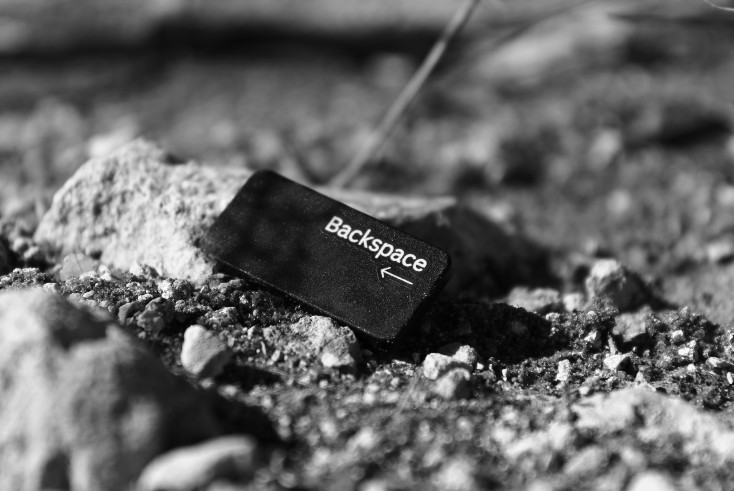Is this the ‘slow terminal decline’ of the internet as we know it?

The Media Leader Podcast
Generative AI’s development is quickening and its popularity is rising at a time in the history of the internet marked by “enshittification.”
At least, that is according to regular podcast guest, Purpose Union strategic advisor, and Outvertising co-director of advocacy Cass Naylor.
In a recent episode, Naylor was asked to name what he thinks has been the biggest story of 2023 in media. Having listened to opinions from editor-in-chief Omar Oakes and reporters Jack Benjamin and Ella Sagar, Naylor ultimately agreed with Oakes that AI was a major story in 2023, but that the broader context within which it has emerged is even more significant.
In November 2022, writer Cory Doctorow coined the term “enshittification” to describe a process of digital platform decay, caused by social media companies acting as two-sided markets.
According to Naylor, the “enshittification” of the internet will only continue to be exacerbated by the forthcoming flood of AI-generated content.
Listen to the clip, or read a transcript of the conversation (edited for clarity) below.
Cass Naylor: The big story for me, I think it’s somewhere between Twitter and AI. But there is a broader theme here — and we’ve already cursed twice so I’m gonna curse for the third and final time potentially.
Jack Benjamin: Go for it.
CN: It’s this theme of “enshittification.” The enshittification of the internet. Listeners can look that up, it’s got a Wikipedia entry, it is actually a term.
Broadly, it’s used to describe the move away from quality and the move towards revenue extraction at all costs. So, content gets shorter form, it gets more monetised, there is a move away from content with nuance, long-form op-ed-style consumption.
We’ve been seeing that over a number of years, but certainly [this year, with] the rise of AI and the potential impact that that can have on the dilution of good content online.
How much content will we eventually see that is user-generated and how much of it is going to be AI-generated? It should be a massive concern for all the social media companies. [They] have a vested interest in sorting this out, because the quality of their product is declining every single day. [Elon] Musk is [laughs] doing this in three-times speed compared to the other ones.
But there is a broader theme there I think about the decline of quality content in general. That’s a story from a few years, but I think this year in particular we’ve seen a few instances where we’re really stepping over a precipice into a new phase of the internet in general.
How that impacts news, how that impacts creative output, that for me is the big story that underpins a lot of [other] big stories. It will continue to be the defining story of the decline of the internet over the next couple of years, I reckon.
Omar Oakes: So your big story of 2023 is ‘the end of the internet?’
CN: [Laughs]. Not to ring in the death of the internet.
Or even Twitter, for instance, I think that the Twitter community, or people that are on there (obviously there are many, many communities on Twitter that previously weren’t really interacting because the algorithm sort of kept them apart) — I think there will be some resilience in that userbase.
I don’t think it will turn into a Parler or a Truth Social just yet. Because I think a lot of people still like it. I mean I still like using it even though it’s become this right-wing hellhole in certain places.
But I think we are at the beginning of the end of what we think of as Web 2.0. The current impression of what Web 3.0 is, I don’t think that’s necessarily where we’re going, but I think Web 2.0 — social media, user-generated content, microblogging, massive amounts of data — I think that’s starting to go away.
What it’ll be replaced by, I don’t know. I’m hoping that a proliferation of platforms — it’s not just Threads, but also Mastodon, Bluesky; I’m hoping other players jump into that mix — reinject some competitive into this space, which hopefully will have some effects on quality, at least [it should] in the usual economic theory.
But yeah, I just generally see the slow but terminal decline of the internet we’ve all grown up in, up until this point.
OO: I think that’s really interesting.
The big story for me in my personal/professional life [this year] was actually deleting my Twitter account. Just hearing you talk about it, Cass, I just feel so incredibly liberated. I just feel like I’m not part of that ickiness; just seeing my feed and all that horribleness. It had gotten really bad.
It wasn’t great before Musk, by the way.
JB: I would argue that the decline of the previous era of the internet that we’ve been in is leading to also frayed communities and frayed public discourse. You see that especially around these big conflicts like in Israel and Gaza.
That should concern everyone. And advertisers are very much a part of this as well.
One big example we haven’t touched on today, but which was a really big story in the first half of the year was the Dylan Mulvaney response, and the lack of support for the LGBTQ+ community from advertisers because of toxicity in public discourse, especially seen online.
That has real-world effects, not just online effects.
Listen to whole episode below and hit ‘subscribe’ to download the episode on your favourite podcast player, as well as get notified about future episodes:




